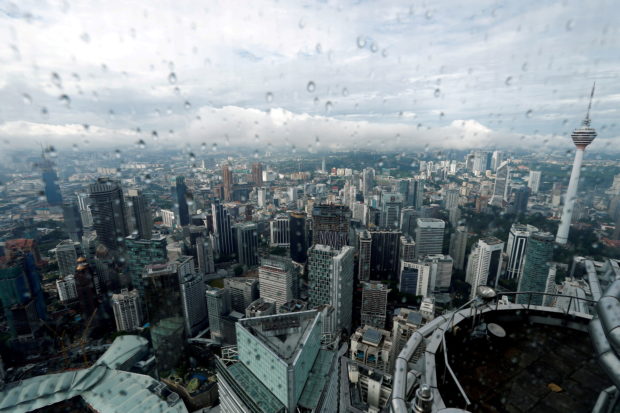
A view of the Kuala Lumpur city skyline in Malaysia August 15, 2017. REUTERS FILE PHOTO
KUALA LUMPUR — Malaysia’s Prime Minister Ismail Sabri Yaakob on Monday tabled a new five-year economic plan, boosting infrastructure spending and committing to a carbon tax under climate change goals as the country looks to chart its way out of a pandemic-induced slump.
Launching the 12th Malaysia Plan in parliament, Ismail Sabri said the country’s financial position was expected to improve in 2023, with the economy targeted to grow 4.5%-5.5% per annum in the next five years.
Malaysia posted average annual growth of 2.7% between 2016-2020, dragged down by a 5.6% contraction last year due to the outbreak of COVID-19, the premier said.
Gross national income per capita rose to 42,500 ringgit ($10,150) in 2020, about 20% lower than the level required to become a high-income country. Malaysia now expects to reach that target by 2025, Ismail Sabri said.
“The 12th Malaysia Plan is a comprehensive development plan that will introduce a number of reforms to ensure sustainable economic growth and more equal distribution of opportunities and results,” Ismail Sabri said.
Malaysia’s export-driven economy has taken a hit from the pandemic. The central bank slashed its full-year growth forecast to 3.0%-4.0% from 6-7.5% last month – the second cut this year.
The government will spend 400 billion ringgit ($95.53 billion) on existing and new development projects between 2021 and 2025, compared with 260 billion ringgit in the 11th Malaysia plan, Ismail Sabri said.
These include new highways and rail networks linking rural areas with urban and industrial hubs, more affordable housing, as well as improvements in health, education, and broadband connectivity.
Malaysia also aims to become a carbon neutral country by 2050, Ismail Sabri said, adding that economic instruments such as carbon pricing and a carbon tax will be introduced.
The government also pledged to stop building coal-fired power stations, as it continues its efforts to reduce greenhouse gas emissions intensity of GDP by 45% in 2030, the premier said.
Other promises included plans to reduce the country’s dependence on foreign labour, provide support to small and medium-sized businesses, and turn Malaysia into a regional investment hub.
($1 = 4.1870 ringgit)